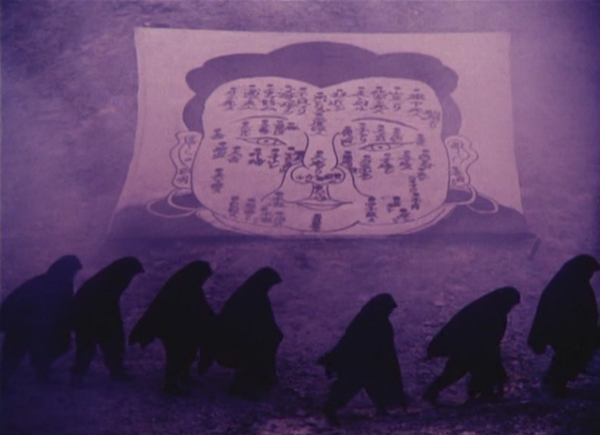
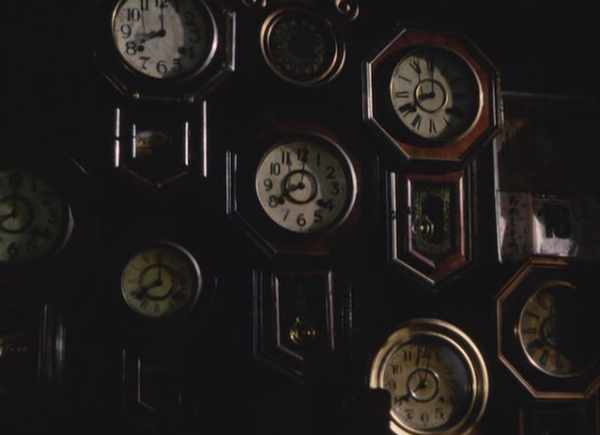
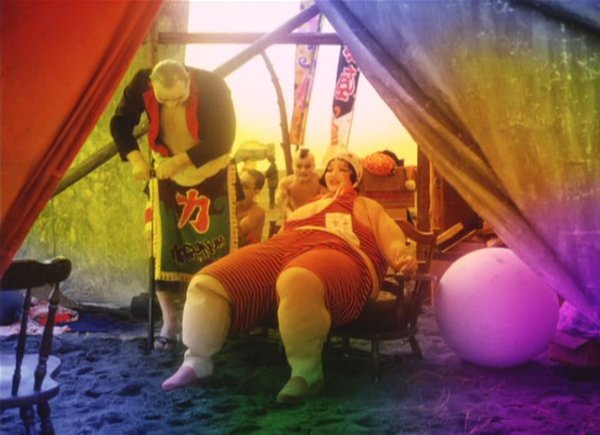
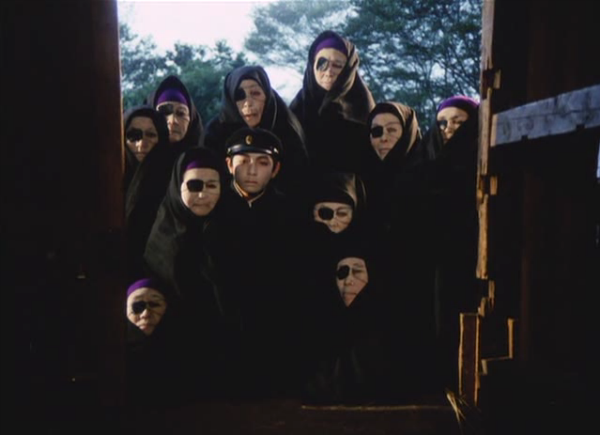
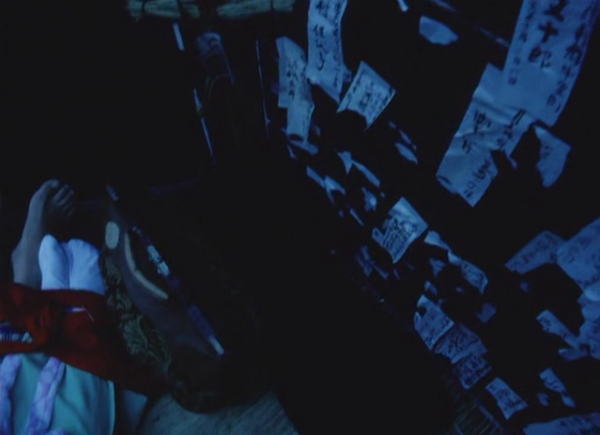
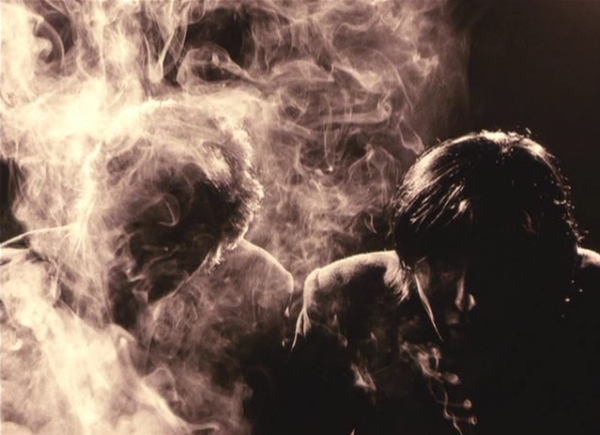
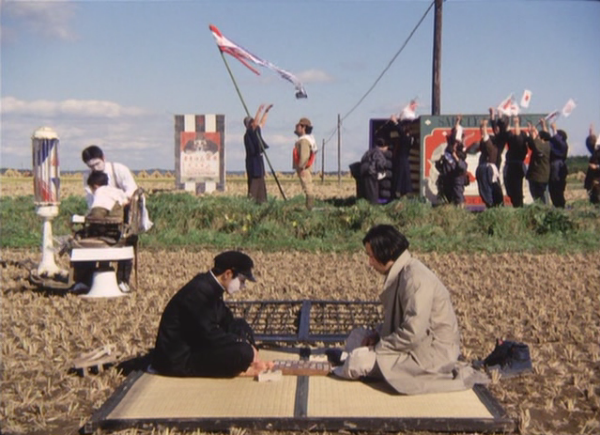
Terayama's take on the subjective nature of memories and time is a dazzling array of surrealistic whimsy. Pastoral takes place in a small mountain village and concentrates on core group of people- a 15 year old schoolboy and his pestering, war-widowed mother, an unhappy housewife next door, a village girl with an illegitimate newborn baby and a circus woman with an inflatable suit. Faces of the boy and his mother's as well as some other characters' are painted white, as if they are some sort of disclaimer, that they are fictional characters. The boy's yearning to leave his home and be free of his mother, as well as burgeoning sexuality is presented with constant mention of trains and train tracks. The film is full of contrasts : the villagers are stuck in the past, oblivious of the fast changing society elsewhere.
Then the film becomes metaphysical, movie within a movie half way. But it's not all celebration of the creative minds like Fellini's 8 1/2. As the lights come on in the screen room, the director (or an actor playing one) discusses the subjective nature of memories. He is conflicted as to how to proceed. On one hand, he feels exploitative, on the other, the film is an embellishment of memories. It's the director's love/hate relationship with Japanese past full in display and is pretty dark: as the director contemplates his existence, he proposes to kill his mother when confronted with his younger self, wondering how it would've turned out if he were never born or became someone else.
Pastoral is a very Japanese film, a reflection of changing times still under the shadows of its war past. I loved its messy lyricism and playfulness. More Terayama films are in order.
No comments:
Post a Comment